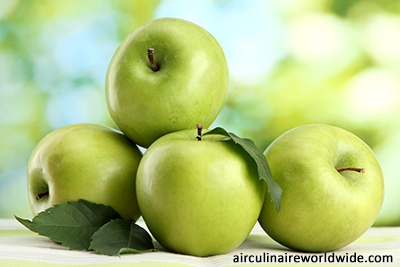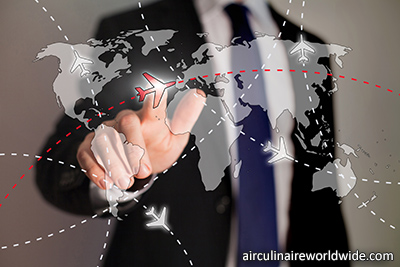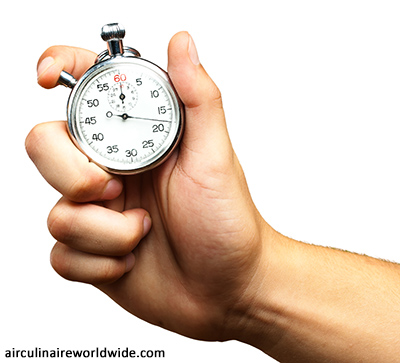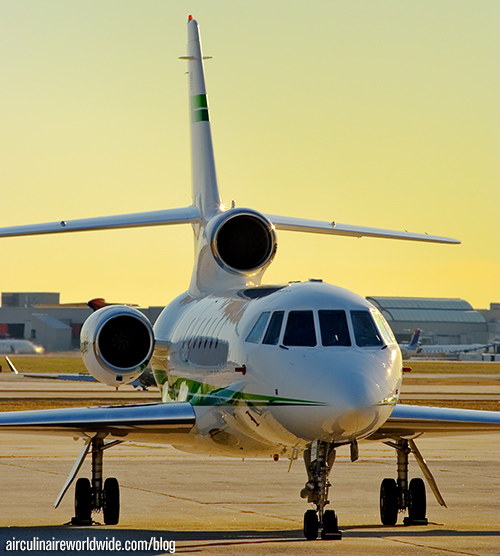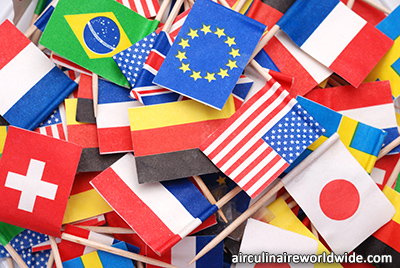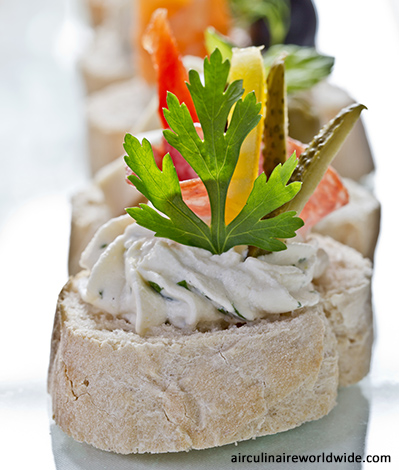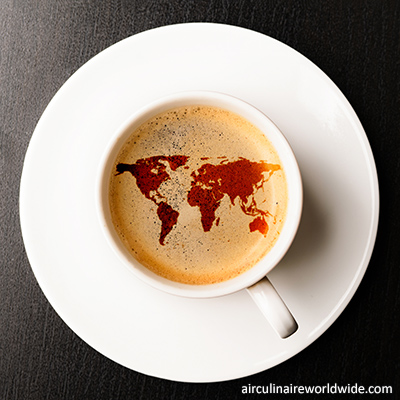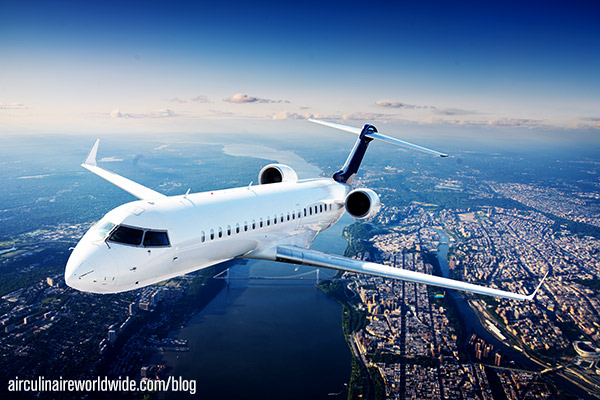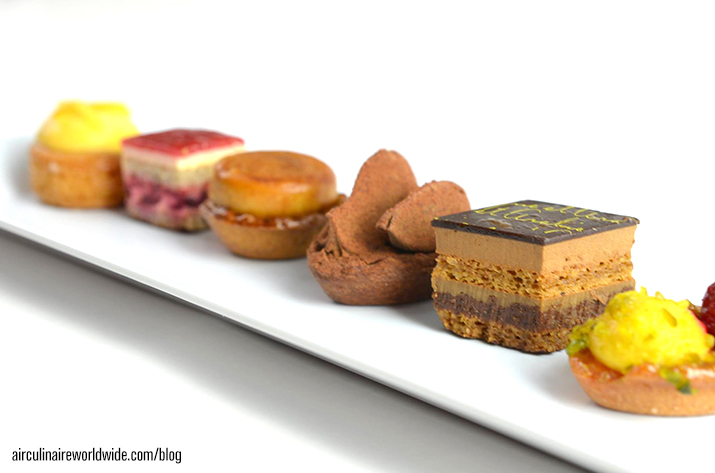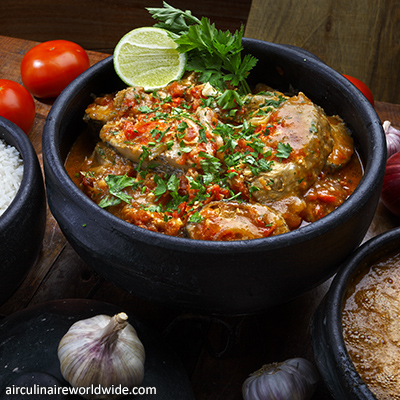Food impacts every facet of your health. Of utmost concern to flight crews: what you eat changes your metabolism, alertness and energy level. When working on an extended flight, you will need to eat more consciously than you would while on the ground. The goal is to eat in a way that you benefit from peak mental alertness and stable energy levels.
When in the cockpit, being alert and focused is critical. Consuming a large meal in-flight, or just prior to flight, can divert as much as one-third of your entire blood supply to your digestive system. This not only decreases your mental energy, but also makes you feel sluggish. Eating small meals and healthy snacks will help you maintain a steady metabolism over several hours, especially on longer international flights. Instead of eating three big meals, keep a steady flow of energy by eating five to six smaller meals that include protein.
Our bodies need calories in order to make energy, and we get calories from carbohydrates, proteins and fats. Choose foods that provide steady energy while making sure not to overload your digestive system. On longs flights, it’s important to eat healthy proteins and minimize carbs and fats. Eat more protein-rich foods than you normally would while on the ground in order to maintain mental acuity. Keep carbs and fats to a minimum so you can stay alert and focused. Everything you eat has an effect on your body, and when you pay attention to what you are eating, you can feel how different foods impact your energy level.
In-flight crew meals should always contain a source of protein since it helps you stay awake and alert. For breakfast, go for some eggs instead of high-carb items like French toast. Avoid foods with a lot of carbohydrates such as pasta, rice and potatoes, since they are well known for their Carb-induced sleepiness. When having pizza for lunch, opt for thin crust with meat and cheese and skip the deep dish carbs. If you are a carb eater (like me), then try “slower carbs” that include sweet potatoes, yucca, quinoa, amaranth, spelt and wild rice. Other examples of lighter meals with an optimal protein-to-carbohydrate ratio include shoyu beef and soba noodle salad or sea scallops with purple Peruvian potatoes.
Snacks are also important for maintaining a steady flow of energy and focus. Additionally, having sugary snacks or drinks will give you quick boost of energy followed by an energy deficit. Many common crew meal requests, like sandwiches, chips, sodas and cookies, are poor options, especially for long flights. The biggest offender is sugar which can lead to spikes in energy levels and cause unwanted fatigue. Flight crews should snack strategically and that means skipping the potato chips, candy and sugary drinks like soda.
Protein-rich snacks, such as dried meats, nuts, vegetables or yogurt-covered raisins, are great choices. Low-glycemic fruits, like Granny Smith apples, are recommended in place of sweeter tropical fruit. Bitter vegetables, like broccoli or asparagus, have lower sugar and carb counts and thus make great in-flight snacks. The key is to make sure not to let yourself become so hungry that you settle for chips, candy or any random snack available.
In addition to eating optimally, it’s important to stay hydrated in order to keep your body functioning properly. Make sure to drink plenty of water; 2.2 liters for woman and 3 liters for men daily. Soda, fruit juice or coffee with sugar may seem like a good idea but will only give you an energy spike, followed by an energy deficit. An energy boost may be beneficial sometimes, like when you are on approach to landing and feeling sluggish. However, it is best to keep a balanced flow of energy throughout the flight, so if you must have coffee or tea, stick with decaf during the flight. It may seem healthy to turn to a diet drink since they don’t have sugar, but recent studies show that sugar substitutes, like aspartame, may be worse than sugar.
Long flights require extra attention to your food and drink intake. Making the right food choices for extended operations will have a positive impact on alertness, energy and performance. Staying hydrated while eating smaller meals or snacks more frequently will improve the success of flight operations.
Questions?
If you have any questions about this article, contact me at rleemann@airculinaire.com.
